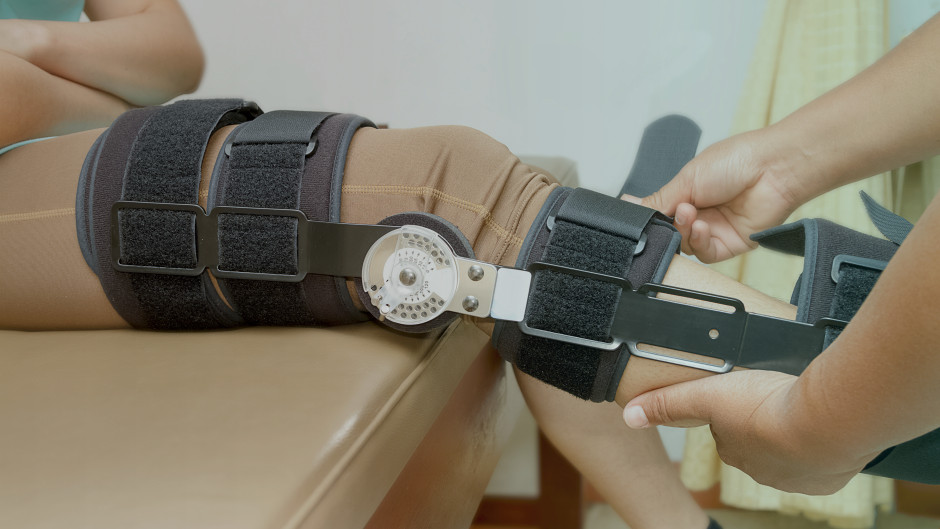“You have low back pain because your core is weak.”
“You have low back pain because your core is weak.”
Does this sentence sound familiar? Are you someone with with low back pain who has been told this narrative? Are you a clinician who has used these words with patients?
Let’s start by saying the implementation of core exercises (i.e. planks, birddogs, deadbugs) into low back rehab is not wrong. Can they help? Potentially. But it is important that we, as healthcare professionals and coaches, are mindful in our word choices and explanations to patients, as they can have a huge impact on an individual's beliefs, promote fear, and lead to fear avoidant behavior. Let’s examine three main reasons as to why we need to reconsider using the narrative of a “weak core” as a cause of persistent low back pain:
1. Words Matter
The influence a clinician's narratives and words have on a patient’s outcome is profound. When we explain to a patient their lack of muscles is the cause of their pain, they may view themselves (and their body and spine) as fragile and vulnerable, thus creating negative expectations. The impact of our words will last far longer than any exercise program we provide, so it would be wise to spend time empowering them, rather than using negative verbiage.
Furthermore, using narratives surrounding weak core muscles as a cause of low back pain hangs our hat strictly on a biomedical model, thus ignoring the possibility of other contributing factors (i.e. psychological, social). Remember, low back pain is complex. A current definition describes pain as “a distressing experience associated with actual or potential tissue damage with sensory, emotional, cognitive, and social components.” We must examine the whole person in front of us, and be careful when blaming pain solely on biomedical reasons (i.e. strength, anatomy, muscle length). Can it be correlated? Maybe. But be cautious when educating it as the cause of pain.
2. Core vs General Exercise
Can you prescribe anti-extension or anti-rotation exercises in a low back rehab program? Sure. But some research shows utilizing core exercises are NO different with long term outcomes than general exercise for treatment of persistent low back pain. So then what exercise option is best? Honestly, it is the one the patient will do. What do they enjoy? What type of exercise is convenient? Is the activity simple or does it require lots of coaching? What equipment do they have access too? These are just some questions to consider when developing an individualized treatment strategy.
Another consideration is understanding some individuals with persistent low back pain actually demonstrate higher global trunk muscle activity as compared to non painful populations. Is this because those with back pain are constantly taught to brace when performing activity? Or is it a strategy developed in order to reduce sensitivity with certain movements? Some individuals may not require a core exercise routine, as programming can be as simple as providing them permission to move and returning to meaningful activities.
3. Other Influences on Pain
A consideration as to why classic core exercise may help with low back pain can be attributed to their analgesic effects. All of these movements elicit isometric muscle activity, which has been proven to reduce pain pressure thresholds. If someone is generally sensitive or fear avoidant with certain spine motion, these can be great starting options as they are relatively safe, limit overall spine motion, and can alter pain.
Anytime we implement a treatment strategy (whether it helps mitigate symptoms or not), we need to constantly seek to understand ‘the why’. Why did this particular intervention help? Was it a certain technique or exercise? Or was it simply time? Are there other contextual factors involved that influence recovery? Would we reach the same outcome if different type of exercise was used instead? Maybe core exercises helped, but it would be hard to rule out other factors as contributors to reaching our desired outcome. This is important when explaining narratives to patients, as we should be cautious suggesting one treatment technique (i.e. manual therapy, modality, exercise) was the determining factor for mitigating pain.
At the end of the day, there is nothing wrong with utilizing core exercises, but we need to be aware that the narratives we say have a significant impact on long term outcomes. Words built around nocebo language can create fear and build dependency, when instead, our goal should be to instill optimism, empower, and promote meaningful activities with the ultimate goal of autonomy.
About the author:
I was born and raised in the Bay Area (California) and graduated from University of California at Davis in 2005 with a degree in Exercise Biology. My desire to help others in a healthcare setting ultimately led me to choose a career in Physical Therapy, and so I went on to earn a Doctorate of Physical Therapy from Massachusetts General Hospital Institute of Health Professions (Boston) in 2010. Additional education and certifications received include Strength and Conditioning (NSCA), Weightlifting (USA-W) and Functional Range Conditioning (FRCms), to name a few. In my spare time, I enjoy traveling, hiking, mountain biking, and SCUBA diving.
Website: www.tonycomella.com
Instagram: https://www.instagram.com/tony.comella/?hl=en
Do you also believe that we as therapists need to keep improving and become modern day physiotherapists who can apply the biopsychosocial model better into practice?
The best place to keep learning and enhance your knowledge is Trust me-ED, "The Netflix for Physiotherapists". Here you can learn from the best teachers in our profession who share their knowledge in high quality lectures and online courses for the cost of three beers per month.
Does this also sound good to you?
Then you can subscribe today and watch all the great lectures whenever you want, wherever you want:



